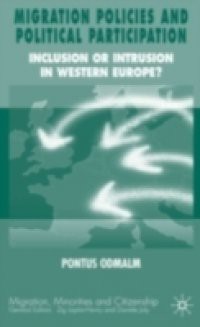The author investigates the institutional opportunities and constraints for migrants to participate politically in five Western European counties. The book explores how the national political arena has been shaped through the historical development of these institutions and what effects they have on the political integration of migrants and ethnic minorities and the ways in which they organise. These settings also influence the strategies that organised migrant interests pursue, and the author looks closer at why certain options have been present in some countries but not in others. In addition, the book also looks at how post-war immigration has effected citizenship and immigration policies in France, Germany, the Netherlands, Sweden and the United Kingdom. By comparing these policies, conceptual interpretations and institutional arrangements, the author argues that these factors are key variables to consider in order to explain why levels of political participation vary between countries. The book also explores the extent to which host society identification can be used as an additional explanatory variable for political integration.

